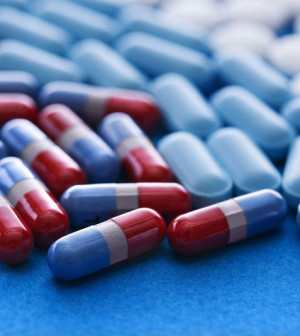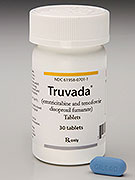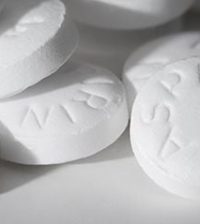- Fragments of Bird Flu Virus Found in U.S. Milk Supply
- There’s an ‘Epidemic’ of Loneliness Among U.S. Parents, Poll Finds
- Infertility Is Rising Among Young Married Women
- New Rules Mean 3.6 Million Americans Could Get Wegovy Via Medicare, Costing Billions
- ‘Dream It, Be It?’ Study Finds Teens Who Focus on Life Goals Often Succeed
- Trying ‘Magic Mushroom’ Drug to Ease Depression? It Has Side Effects
- $282 Billion: What Mental Illness Costs America Each Year
- Black, Hispanic Americans Getting Savvier About CPR
- Kids With Common Skin Conditions Face Stigma, Bullying
- Science Reveals How Aspirin Prevents Colon Cancer
For Uninfected Partner, Antiretroviral Drugs May Shield Against HIV


TUESDAY, Sept. 10Antiretroviral drugs can provide a high level of protection against HIV for uninfected people in heterosexual couples in which the other partner has HIV, according to a new study.
The study included more than 1,100 HIV-uninfected people in Uganda who had a partner with HIV, the virus that causes AIDS. The participants were given antiretroviral drugs and received counseling support throughout the study to help them adhere to their drug regimen.
The drug adherence rate was 97 percent to 99 percent in the study, which was published Sept. 10 in the journal PLoS Medicine.
After an average follow-up period of 11 months, just 14 of the participants became infected with HIV, according to a journal news release.
The findings provide further proof that strict adherence to what is called antiretroviral pre-exposure prophylaxis offers high levels of protection to uninfected people, said Jessica Haberer, of Harvard Medical School, and colleagues.
The researchers said several previous studies in various groups (such as men who have sex with men, or women at high risk for HIV) have shown that taking antiretroviral drugs provided uninfected people with varying levels of protection against HIV. One possible explanation for the range of findings is different levels of adherence to the antiretroviral drugs, the researchers said.
“Proper support and assessment of adherence will be critical for determining efficacy of [pre-exposure prophylaxis] outside of clinical trials,” the study authors wrote. “This data will be important for guiding ethical decisions about resource allocation for both prevention and treatment of HIV.”
The Bill & Melinda Gates Foundation funded the study.
More information
The U.S. Centers for Disease Control and Prevention has more about pre-exposure prophylaxis.
Source: HealthDay
Copyright © 2024 HealthDay. All rights reserved.










